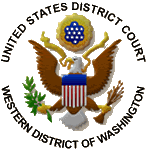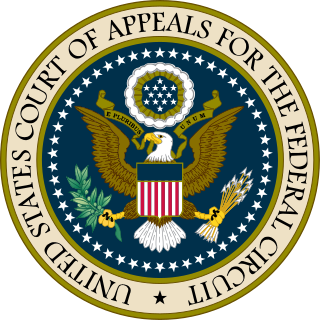
United States of America v. Microsoft Corporation, 253 F.3d 34, was a landmark American antitrust law case at the United States Court of Appeals for the District of Columbia Circuit. The U.S. government accused Microsoft of illegally monopolizing the web browser market for Windows, primarily through the legal and technical restrictions it put on the abilities of PC manufacturers (OEMs) and users to uninstall Internet Explorer and use other programs such as Netscape and Java.
An end-user license agreement or EULA is a legal contract between a software supplier and a customer or end-user, generally made available to the customer via a retailer acting as an intermediary. A EULA specifies in detail the rights and restrictions which apply to the use of the software.

Step-Saver Data Systems, Inc. v. Wyse Technology was a case in the U.S. Court of Appeals for the Third Circuit primarily concerned with the enforceability of box-top licenses and end user license agreements (EULA) and their place in U.S. contract law. During the relevant period, Step-Saver Data Systems was a value-added reseller, combining hardware and software from different vendors to offer a fully functioning computer system to various end users. Step-Saver's products included software produced by Software Link, Inc (TSL), computer terminals produced by Wyse Technology, and main computers produced by IBM. The fundamental question raised in this case was whether the shrinkwrap licenses accompanying TSL's software were legally binding, given that different terms were negotiated over the phone with Step-Saver prior to receiving physical copies of the software. The case was first heard in the United States District Court for the Eastern District of Pennsylvania, where the court ruled that the shrinkwrap licenses were legally binding. However, the U.S. Court of Appeals for the Third Circuit subsequently reversed this decision, ruling that the shrinkwrap licenses were not legally binding.
The first-sale doctrine is an American legal concept that limits the rights of an intellectual property owner to control resale of products embodying its intellectual property. The doctrine enables the distribution chain of copyrighted products, library lending, giving, video rentals and secondary markets for copyrighted works. In trademark law, this same doctrine enables reselling of trademarked products after the trademark holder puts the products on the market. In the case of patented products, the doctrine allows resale of patented products without any control from the patent holder. The first sale doctrine does not apply to patented processes, which are instead governed by the patent exhaustion doctrine.
Terms of service are the legal agreements between a service provider and a person who wants to use that service. The person must agree to abide by the terms of service in order to use the offered service. Terms of service can also be merely a disclaimer, especially regarding the use of websites. Vague language and lengthy sentences used in these terms of service have caused concerns about customer privacy and raised public awareness in many ways.
SoftMan Products Co. v. Adobe Systems Inc. was a lawsuit heard in the U.S. District Court for the Central District of California in 2001 by Judge Dean D. Pregerson.
A clickwrap or clickthrough agreement is a prompt that offers individuals the opportunity to accept or decline a digitally-mediated policy. Privacy policies, terms of service and other user policies, as well as copyright policies commonly employ the clickwrap prompt. Clickwraps are common in signup processes for social media services like Facebook, Twitter or Tumblr, connections to wireless networks operated in corporate spaces, as part of the installation processes of many software packages, and in other circumstances where agreement is sought using digital media. The name "clickwrap" is derived from the use of "shrink wrap contracts" commonly used in boxed software purchases, which "contain a notice that by tearing open the shrinkwrap, the user assents to the software terms enclosed within".

ProCD, Inc. v. Zeidenberg, 86 F.3d 1447, was a court ruling at the United States Court of Appeals for the Seventh Circuit. The case is a significant precedent on the matter of the applicability of American contract law to new types of shrinkwrap licenses that arose with home computing and the Internet in the 1990s, and whether such licenses are enforceable contracts.

Specht v. Netscape, 306 F.3d 17, is a ruling at the United States Court of Appeals for the Second Circuit regarding the enforceability of clickwrap licenses under contract law. The court held that merely clicking on a download button does not show consent with license terms, if those terms were not conspicuous and if it was not explicit to the consumer that clicking meant agreeing to the license.
Microsoft has been involved in numerous high-profile legal matters that involved litigation over the history of the company, including cases against the United States, the European Union, and competitors.
Proprietary software is software that grants its creator, publisher, or other rightsholder or rightsholder partner a legal monopoly by modern copyright and intellectual property law to exclude the recipient from freely sharing the software or modifying it, and—in some cases, as is the case with some patent-encumbered and EULA-bound software—from making use of the software on their own, thereby restricting their freedoms.
Browsewrap is a term used in Internet law to refer to a contract or license agreement covering access to or use of materials on a web site or downloadable product. In a browse-wrap agreement, the terms and conditions of use for a website or other downloadable product are posted on the website, typically as a hyperlink at the bottom of the screen. Unlike a clickwrap agreement, where the user must manifest assent to the terms and conditions by clicking on an "I agree" box, a browse-wrap agreement does not require this type of express manifestation of assent. Rather, a web-site user purportedly gives their consent simply by using the product — such as by entering the website or downloading software.
The bundling of Microsoft Windows is the installation of Microsoft Windows in computers before their purchase. Microsoft encourages original equipment manufacturers (OEMs) of personal computers to include Windows licenses with their products, and agreements between Microsoft and OEMs have undergone antitrust scrutiny. Users opposed to the bundling of Microsoft Windows, including Linux users, have sought refunds for Windows licenses, arguing that the Windows end-user license agreement entitles them to return unused Windows licenses for a cash refund. Although some customers have successfully obtained payments, others have been less successful.

Register.com v. Verio, 356 F.3d 393, was a decision of the United States Court of Appeals for the Second Circuit that addressed several issues relevant to Internet law, such as browse wrap licensing, trespass to servers, and enforcement of the policies of the Internet Corporation for Assigned Names and Numbers (ICANN). The decision upheld the ruling of a lower court which prevented a provider of web development services from automatically harvesting publicly available registration data from a domain name registrar's servers for advertising purposes.
Data General Corp. v. Digital Computer Controls, Inc. was a 1971 case in which the Delaware Court of Chancery determined that widespread, confidential disclosure of trade secrets does not necessarily compromise their secrecy. Data General Corporation distributed design documentation with its Nova 1200 minicomputer, notifying owners of the confidentiality of these design drawings through contractual agreements and explicit text on the drawings. After acquiring drawings with a Nova 1200 purchase, Digital Computer Controls designed its own nearly identical minicomputer. Digital Computer Controls maintained that its use of the documentation was proper because Data General Corporation inadequately maintained the secrecy of the design drawings by distributing them to many customers. The court found that Data General Corporation had sufficiently protected the secrecy of the drawings and that Digital Computer Controls was thus in violation of trade secret law for improperly using confidential information.

Vernor v. Autodesk, Inc. was a case in the United States District Court for the Western District of Washington regarding the applicability of the first-sale doctrine to software sold under the terms of so-called "shrinkwrap licensing." The court held that when the transfer of software to the purchaser materially resembled a sale it was, in fact, a "sale with restrictions on use" giving rise to a right to resell the copy under the first-sale doctrine. As such, Autodesk could not pursue an action for copyright infringement against Vernor, who sought to resell used versions of its software on eBay. The decision was appealed to the United States Court of Appeals for the Ninth Circuit, which issued a decision on September 10, 2010, reversing the first-sale doctrine ruling and remanding for further proceedings on the misuse of copyright claim. The Ninth Circuit's decision asserted that its ruling was compelled by Ninth Circuit precedent, but observed that the policy considerations involved in the case might affect motion pictures and libraries as well as sales of used software.
In the middle of 2009 the Federal Trade Commission filed a complaint against Sears Holdings Management Corporation (SHMC) for unfair or deceptive acts or practices affecting commerce. SHMC operates the sears.com and kmart.com retail websites for Sears Holdings Corporation. As part of a marketing effort, some users of sears.com and kmart.com were invited to download an application developed for SHMC that ran in the background on users' computers collecting information on nearly all internet activity. The tracking aspects of the program were only disclosed in legalese in the middle of the End User License Agreement. The FTC found this was insufficient disclosure given consumers expectations and the detailed information being collected. On September 9, 2009 the FTC approved a consent decree with SHMC requiring full disclosure of its activities and destruction of previously obtained information.

Bowers v. Baystate Technologies, 320 F.3d 1317, was a U.S. Court of Appeals Federal Circuit case involving Harold L. Bowers and Baystate Technologies over patent infringement, copyright infringement, and breach of contract. In the case, the court found that Baystate had breached their contract by reverse engineering Bower's program, something expressly prohibited by a shrink wrap license that Baystate entered into upon purchasing a copy of Bower's software. This case is notable for establishing that license agreements can preempt fair use rights as well as expand the rights of copyright holders beyond those codified in US federal law.

Nguyen v Barnes & Noble, Inc., 763 F.3d 1171, was a United States Court of Appeals for the Ninth Circuit decision in which the Court ruled that Barnes & Noble's 2011 Terms of Use agreement, presented in a browsewrap manner via hyperlinks alone, was not enforceable since it failed to offer users reasonable notice of the terms. The decision set an important precedent on the future design and presentation of online contracts for consumer-facing e-commerce sites.
Open source license litigation involves lawsuits surrounding open-source licensed software. Many of the legal rights of open source software licensors enforceable against users violating licensing agreements are untested by the U.S. legal system. Free and open source software (FOSS) is distributed under a variety of free-software licenses, which are unique among other software licenses. Legal action against open source licenses involves questions about their validity and enforceability.






